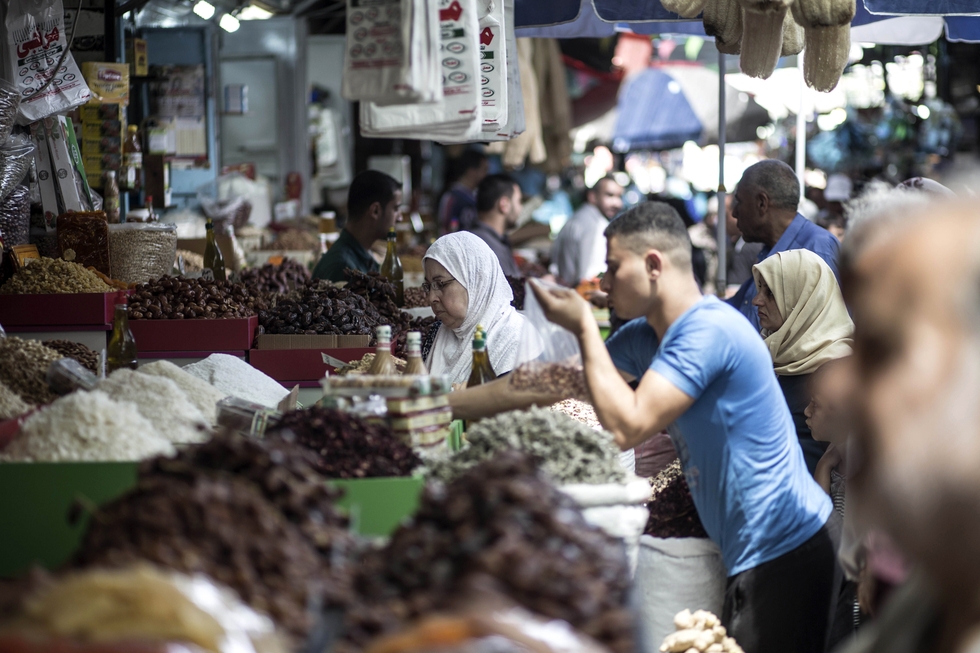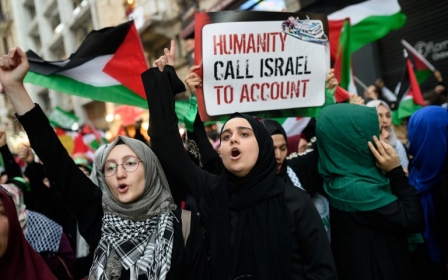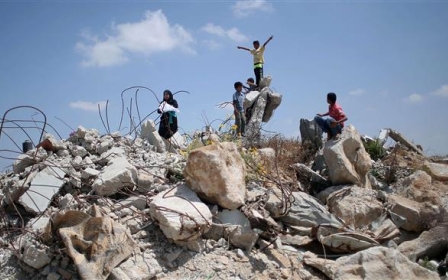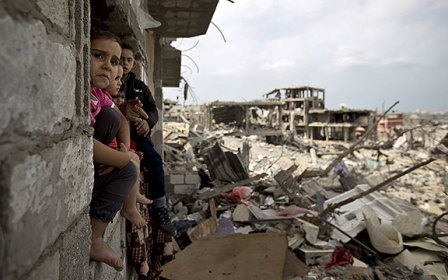Fewer wars and more chocolate: Gazans see hope in Israel-Turkey deal

Rafah, GAZA - Abu Ramy stands on a street in Rafah, selling sweets from a donkey cart to make a living. And he is angry - at Turkey's renewal of ties with Israel, and its decision to drop demands that Israel ends the siege of Gaza.
"They left us alone. There is no ethics in politics," he says. "But there is hope. The only hope is reconciliation between Turkey and Egypt, which may add pressure on Cairo to open Rafah crossing."
In a much-anticipated announcement on Monday, Turkey and Israel said relations would thaw after six years of animosity over the Israeli boarding of the aid ship Mavi Mamara in international waters off the coast of Gaza, in which 10 Turkish activists were killed.
But hoped-for concessions from the Israelis, namely the easing of Gaza's siege and naval blockade, proved unfounded.
And even hopes of an end to the Rafah blockade appear distant, however, if reports prove correct that Cairo has been meeting representatives of the Kurdish PKK party, Ankara's sworn enemy - meetings that are bound to strain ties between the two countries.
Abu Ramy's feelings of abandonment are shared by many others in Gaza. Many people told Middle East Eye that they feel abandoned, while others mocked the ruling Hamas movement for its support of Turkey.
Hamas officials had in the days before the deal flipped between confirming and denying the deal would end the siege, while stating all along that it appreciated the "supportive stance" of Turkey for the people of Gaza.
A satirical cartoon shared among some Gazans depicts the deal as an empty cart heading for the sea.
Nevertheless, Maram Jaber has found a glimmer of hope in the deal.
“The only gain is that the wars will be more unlikely - I could not believe Turkey would allow Israel to launch a war anytime soon,” says the graduate student.
She adds that she hoped for an increase in commerce after Israel agreed to deliver Turkish aid via border crossings.
“So my conclusion is no war anytime soon, and more Turkish chocolate.”
Building confidence
The Israel-Turkey deal reportedly involves a compromise in which Israel will allow the completion of a much-needed hospital in Gaza, as well a new power station and a desalination plant for drinking water.
However, hopes were much higher for Gazans for job-creation schemes in a place where about 43 percent of Gaza's 1.9 million residents are unemployed - the highest jobless rate in the world.
Turkey's decision to suspend ties with Israel in 2010 over the Mavi Marmara raid was hailed in Gaza.
In the years that followed, the Turkish decision became a cause celebre in the strip - shops were renamed in honour of Turkish cities, and newborns were named after the current Turkish president, Recep Tayyip Erdogan.
But how his stock fares in the enclave after the deal remains to be seen.
Gaza-based political analyst Sharhabel al-Gharieb says Turkey is a big state that has always supported the Palestinian people over the years, but the deal with the Israelis focuses on “Turkish interests”.
Nevertheless, that does not mean Gaza has been abandoned, he adds.
“But by signing this deal, it does not mean that Turkey gives up on its support to the Palestinian people," al-Gharieb said.
"Turkey has the right to maintain its interests… the deal that has been signed will be a first important step towards lifting the blockade.”
Not so for Belal Khair Eldin, an activist on social media, who says Gazans are told what their future will be, decrees and decisions were made for them, "and in between we receive missiles over head".
“Turkey's act with Gaza is like a man who for a long time promised to marry his beloved, but ended up marrying her cousin instead,” he said.
This article is available in French on Middle East Eye French edition.
Middle East Eye propose une couverture et une analyse indépendantes et incomparables du Moyen-Orient, de l’Afrique du Nord et d’autres régions du monde. Pour en savoir plus sur la reprise de ce contenu et les frais qui s’appliquent, veuillez remplir ce formulaire [en anglais]. Pour en savoir plus sur MEE, cliquez ici [en anglais].




